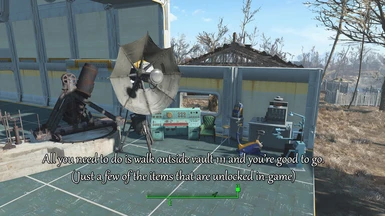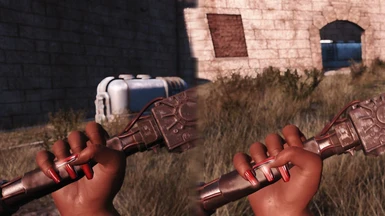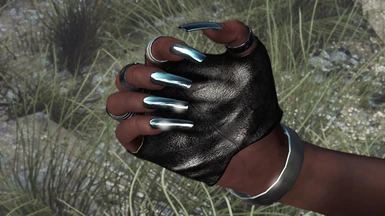

"I understand what you mean, and hey, I admit that was my case as well. Here's my opinion on the Reddit post, as I' wrote there:

It removed any depth the game could have had without them. Bethesda royally fucked everyone with that dialogue system and character customization. Hopefully this will be the case for future Fallout games and RPGs in general.Ĭlick to expand.This. Remove these restrictions, and as I said, there is nothing holding the game back aside from the developers' abilities. If Bethesda had not decided to stick with them, then would have been no restrictions holding them back from making a great Fallout game, though this is only technically true, and there are other less categorizable issues with the quest and world design that would have existed because it's Bethesda who made this game. The character and dialogue systems were what doomed F4 to not having any chance at being a, for brevity's sake, great Fallout game. It's been said here that Bethesda would not be keen to the removal of F4's character system in favor of one that is based on the past format of skills, perks, and traits, but I think whether that will be the case remains unclear. There are some critical aspects that have to be met though, including allowing Obsidian to make a character and dialogue system as they would like. If Obsidian get to make another Fallout game, then as long as they have the same or greater degree of freedom they had while they were making FNV, then I would be happy to support it.

"Then they'd sit on the project for six weeks, make their comments and suggestions and say 'we need it in two days.' Even though the client was valuable, Justen ended the relationship because it didn't pass his "grief to revenue ratio" test.I'm not sure whether you're being sarcastic, and IIRC Obsidian was hardly restricted in their development of FNV, even given complete freedom outside maybe a small number of conditions that can be counted by hand. "We had a client who would set up artificial deadlines and we'd bust our humps and pay overtime to make the deadline," says Peter Justen, the founder of, an online business intelligence engine for small companies. This customer wants you to think the sky is falling every time she needs something. Miller, a Boston-based manufacturer of luxury outerwear, "But after several repeat seasons of customers paying very slowly, we just won't go after them to show them a new collection." "We try to "manage" customers in the hopes of keeping them," says Mark Miller, CEO of M. He'll beat you up on price until you're working for pennies and then he'll string you out for more than 120 days on invoices. Times are tough for everyone, but a tightwad cares only about his own bottom line. But as soon as the project ended, we canceled the contract for the rest of the work." "I went to the client's office to check on things and my employee said 'it's been a good day the project manager hasn't made me cry today.'" Gimmel and her partner decided to finish the current project because "we didn't want to leave them hanging half-way through. Molly Gimmel, co-founder of D2DInc., a Washington, DC firm that helps companies acquire and manage government contracts, let a client go after "they treated our staff very unprofessionally," she says. They're nasty, impossible to please, and they typically abuse your most important asset: your employees. We came up with four types that you should seriously think about weeding out of your client base: I asked a few entrepreneurs to tell me how they know when it's time to part ways with a troublesome customer.

Pluck them out and everything becomes healthier, more manageable and, yes, infinitely more beautiful. These folks are like weeds in your garden: they choke out the sun, suck up all the nutrients, and leave you with precious little time to take care of all the good stuff. Sure, you should always strive to treat your customers like lifetime investments, but every so once in a while you'll find yourself with a customer who seems bent on being a lifetime pain in the neck.


 0 kommentar(er)
0 kommentar(er)
